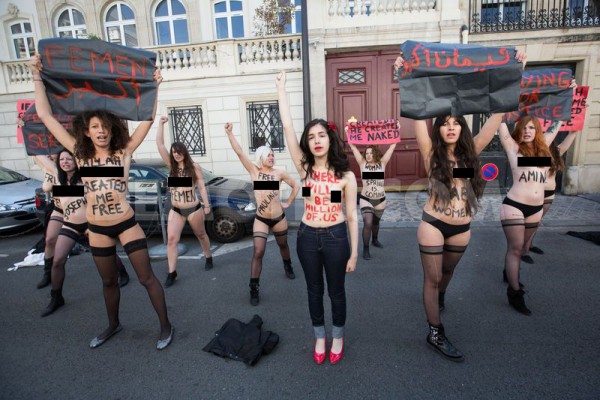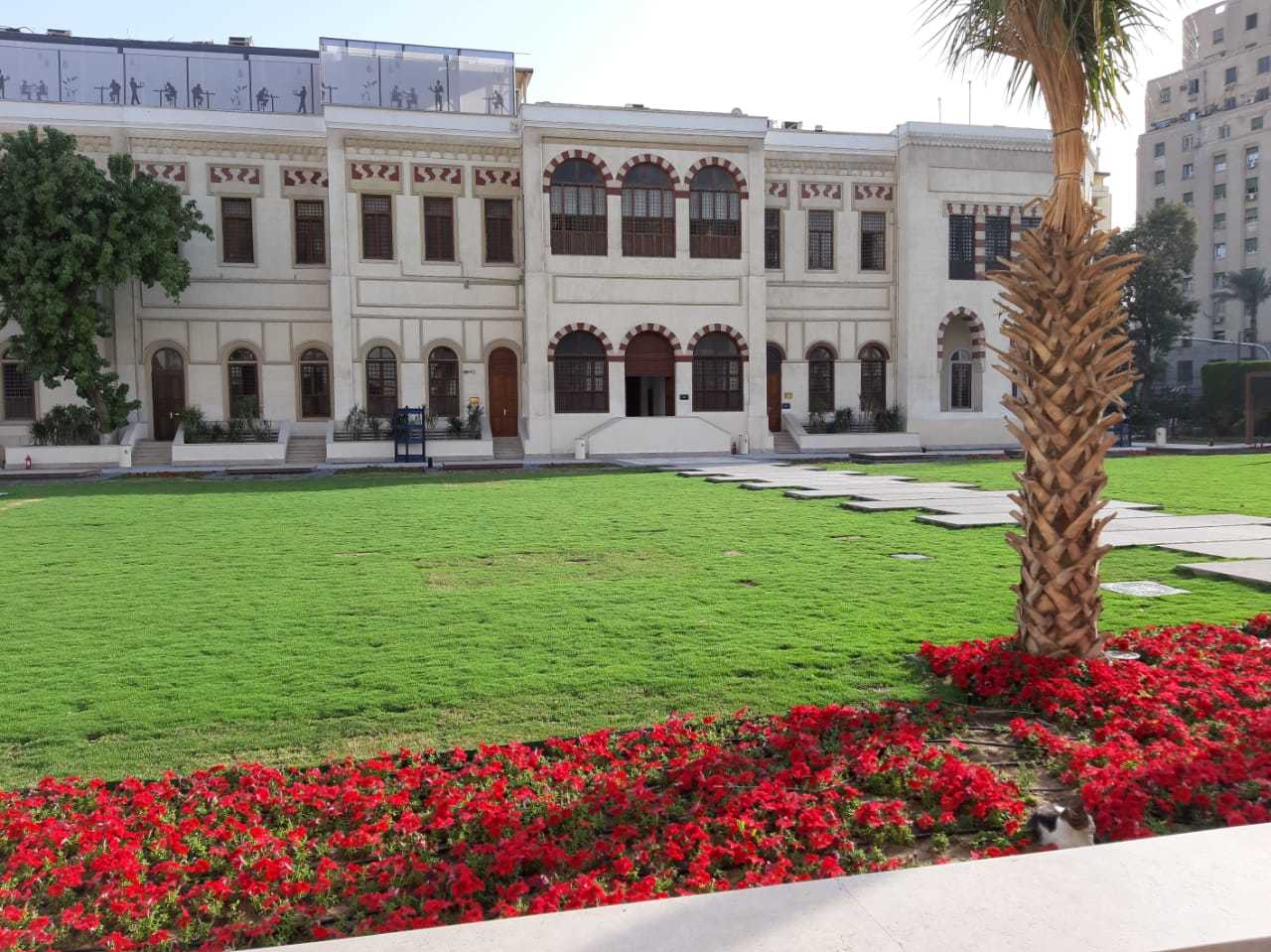Nudity as Freedom of Expression or Crossing the Line?

BY MARY ARAVANI
Alia El Mahdy was a virtually unknown blogger who shot to notoriety when she posted nude pictures of herself online in 2011, claiming she was expressing her right to protest the lack of women’s rights in Egypt.
On her blog, she said her public nudity was a “scream against a society of violence, racism, sexism, sexual harassment and hypocrisy”.
In an interview with CNN in November 2011, El Mahdy said, “The photo is an expression of my being and I see the human body as the best artistic representation of that… I am not shy of being a woman in a society where women are nothing but sex objects harassed on a daily basis by men who know nothing about sex or the importance of a woman.”
In December 2012, El Mahdy and two other female Ukrainian activists protested nude in front of the Egyptian embassy in Stockholm in attempts to show their opposition to the Egyptian constitution and the rule of deposed President Mohamed Morsi. El Mahdy inked “Sharia is not constitution” across her nude body. The two other activists held signs stating “no religion” and “religion is slavery”.
El Mahdy’s approach to protesting Egyptian women’s rights garnered worldwide media attention but also sparked controversy and debate about the limits of freedom of expression.
In Egypt’s conservative society, anything with a sexual connotation immediately stands out as a result of the country’s cultural taboos and her protest was met largely with disapproval, with the exception of a select few who said she was a brave activist.
Egyptian blogger and AUC alumna Salma Hegab said that the truth is that most people are not actually concerned with vital issues and that involving nudity is just a way to garner attention.
Hegab added, “I think there are other ways that could get the world’s attention but it takes more creativity and thinking. This approach may be as dull as the people who they are fighting – but again – I’m not in their place; I didn’t walk a mile in their shoes.”
Femen, a feminist protest group considered radical by some, is among El Mahdy’s strongest supporters. Femen describes itself as “an international women’s movement of brave topless female activists painted with slogans and crowned with flowers … Activists’ naked bodies are the undisguised hatred toward the patriarchal order and new aesthetics of women’s revolution.”
Femen was founded in 2008 by Ukrainian activist Anna Hutsol. The group’s goals developed into fighting sexual exploitation of women, religion and dictatorship.
In 2013, Ukrainian police accused Femen of having weapons in their Kiev office. As a result, the Kiev office shut down and the organization moved to Paris.
Samira Ibrahim also protested in Tahrir but rose to the fore as a result of an entirely different set of circumstances.
While participating in a sit- in in Tahrir Square, Ibrahim was arrested by the military and forced to undergo a “virginity test”.
In an article written for The Guardian, Egyptian-American journalist and AUC alumna Mona Eltahawy wrote that “Samira Ibrahim, the only one of the women subjected to “virginity tests” who is taking the military to court for sexual assault, has neither a dedicated hashtag nor notoriety.”
This discrepancy has been one of the critiques targeting El Mahdy – her perpetual rise to infamy.
In her CNN interview El Mahdy said, “The [nude] photo is an expression of my being and I see the human body as the best artistic representation of that…I first joined the protests on May 27th because I felt the need to participate and decided I might be able to change the future of Egypt and refused to remain silent.”
El Tahawy rejects criticism of El Mahdy as having hurt the January 25 revolution or discrediting the causes for which millions took to Tahrir Square.
“[El Mahdy] is the Molotov cocktail thrown at the Mubaraks in our heads – the dictators of our mind – which insists that revolutions cannot succeed without a tidal wave of cultural changes that upend misogyny and sexual hypocrisy,” El Tahawy wrote in November 2011.
Whether she was panned or praised, ElMahdy’s actions do spark debate about freedom of expression.
“I didn’t like what she said but I think freedom of speech should be absolutely free… I always thought she wanted attention,” Political Science senior Youssef Sallam said.
Sallam believes that it was illogical to think that El Mahdy could have made much of a positive difference.
“She really made everyone look pretty bad for belonging to the same camp as she did. It was like, ‘look at the liberals, they want our women to go naked,’ so we had to fight back, perhaps in a way that we didn’t particularly like because she put us in a corner,” he said.
Yara Ragheb, an economics senior, believes that El Mahdy’s strategy to bring into focus women’s rights in Egypt hasn’t been altogether effective.
“[Instead] of shedding a positive light, it sheds a negative light… instead of people actually debating the problem at hand, they focus on the way she has chosen to advertise it. I honestly don’t think it’s effective,” she said.
In Egypt’s conservative society, ElMahdy’s approach to freedom of expression is nonetheless unique. Her nude protesting has caught public attention worldwide; however; whether it is for all the right or wrong reasons remains unclear.
“It has been effective in the way that she got famous and known in Egypt. [But] as for what she is protesting for, I don’t think people concentrated one bit on that,” said Hegab.
But is El Mahdy’s public display of nudity as protest the ultimate freedom of expression? There are both detractors and supporters of her actions and the debate is unlikely to be resolved quickly.
In Hegab’s opinion, freedom of expression is “when you say what you want to say without fear or threats, without being intimidated from religious people or from the authority.”
In August, El Mahdy posted a nude photo of herself crouching over an Islamic State of Iraq and Syria (ISIS) flag and menstruating, while another person was crouching next to her wearing an abaya (Islamic robe) and defecating over the flag.
This graphic image bred controversy online with rumors circulating in social media that she had now become a target of Islamist extremists.
With additional reporting by Omnia Farrag El Sayed




